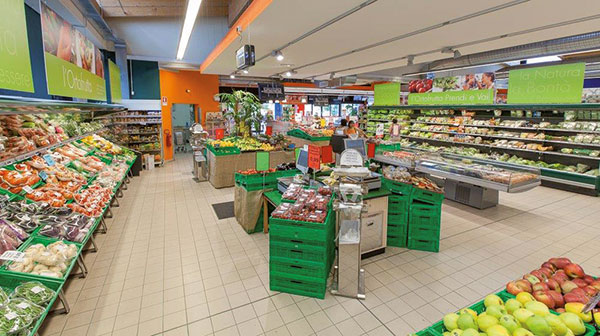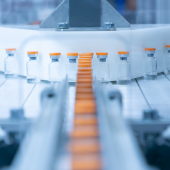Distribution: better logistics, less environmental impact
Conad and CPR System promoted an innovative project, carried out by the University of Bologna, that quantified scientifically the advantages and potential of reusable pallets, adopted for the distribution network of fresh fruit and vegetables.

12 thousand deliveries and approximately 4 million km less in a year, with a measurable environmental impact reduction equivalent to approximately 2600 t of CO2 per year. These are the results of the alliance between Conad, the largest Italian cooperative of associated entrepreneurs, and CPR System, a leading Italian producer of collapsible packaging and a cooperative out of Gallo (FE), which relates its entire supply chain (from production to distribution and transport) to strategic goals of logistical rationalization and environmental sustainability.
The analysis was conducted by the “Food Supply Chain” research center of of of the Alma Mater Studiorum, University of Bologna, directed by Riccardo Manzini (School of Engineering).
The center concerns itself with logistics in the food industry and, in this specific case, it conducted a comparative study of the efficiency and environmental impact of Conad’s distribution network in the sector of fresh products with limited shelf life, analyzing the advantage of using the service of CPR System with suppliers of fresh products that use pallets that are recovered with transports optimized with full loads.
Thanks to the use of a software platform specially developed by the university research group, based on mathematical optimization models, it was possible to precisely account for costs, logistical efficiency and environmental impact.
Advantages in pooling numbers
In particular, the insertion of CPR into Conad’s distribution network of its own brand of fresh products proved advantageous in many measurable ways, from an environmental standpoint:
-approximately 12,000 less deliveries in a year (from 37,000 to approximately 25,000) when pooling with CPR System, handling a few million pallets;
-42% reduction in the km traveled, corresponding to 4 million km less per year, with an environmental impact measurable as approximately 2600 t of equivalent CO2 in a year;
-precise measurement of the reduction in emissions of numerous other noxious substances responsible for the greenhouse effect, eutrophication, photochemical smog, the thinning of the ozone and acid rain, in line with the protocols and international guidelines regulating the life cycle assessment applied to industrial products and procedures.
In conclusion
CPR System, thanks to a well-established network of production and maintenance sites (washing and refurbishing pallets and reusable containers) guarantees the same high reliability and service to all. Conad was able to count on this collaboration in order to implement and develop important strategies to support its future business, focusing on:
- preserving the quality and food safety of its fresh products, also thanks to management of physical/environmental stress;
- quantifying and managing logistical efficiency, optimizing costs and acting to reduce environmental impact.
The triangulation of Conad, CPR System and the University of Bologna has thus enabled quantifying the value of this partnership in the supply chain, which will be one of the topics at the next EXPO Milano.




















